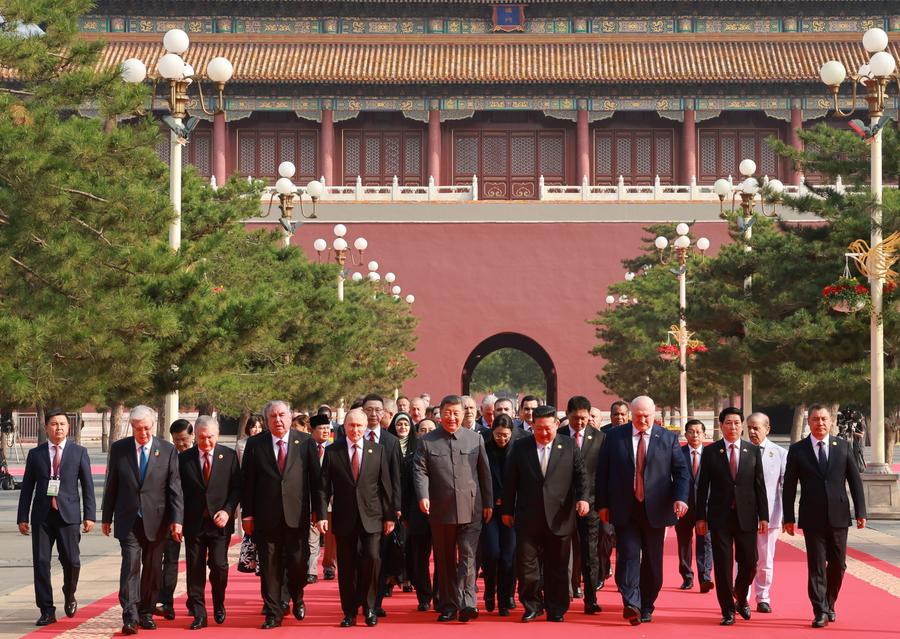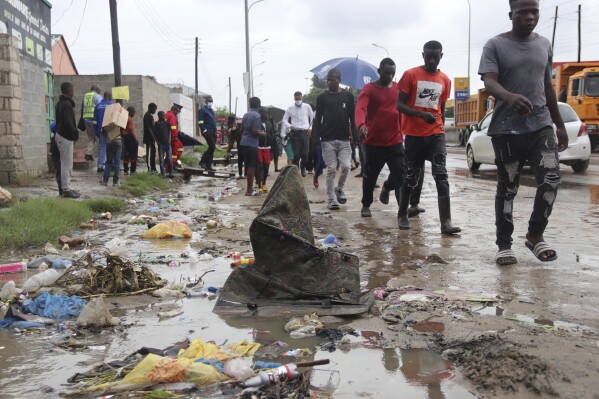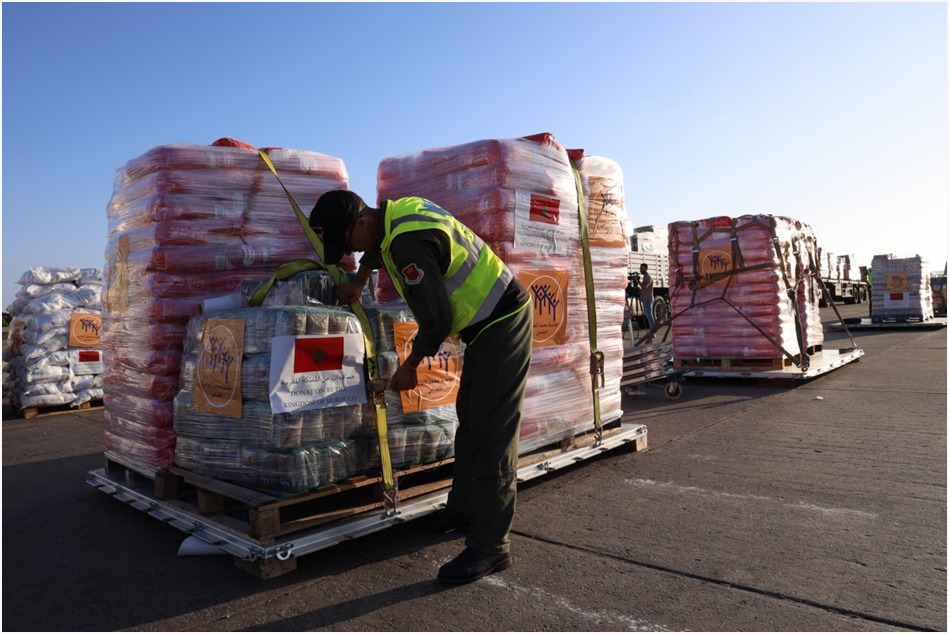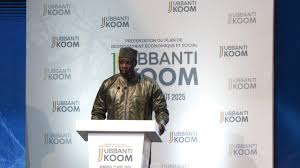Chinese President Xi Jinping and foreign leaders walk to Tian’anmen Rostrum ahead of a grand gathering to commemorate the 80th anniversary of the victory in the Chinese People’s War of Resistance against Japanese Aggression and the World Anti-Fascist War in Beijing, capital of China, Sept. 3, 2025. (Xinhua/Ding Lin)
At Beijing’s Tian’anmen Square, Chinese President Xi Jinping, together with world leaders, attended on Wednesday morning a grand military parade honoring both China’s victory and the collective triumph of nations that overcame fascism eighty years ago.
Standing on the rostrum of Tian’anmen, Xi delivered a speech marking the 80th anniversary of the victory in the Chinese People’s War of Resistance Against Japanese Aggression and the World Anti-Fascist War. He called on nations across the world to eliminate the root cause of war and prevent historical tragedies from recurring.
Xi said common security can only be safeguarded when nations across the world treat each other as equals, live in harmony, and mutually support one another.
For Xi, this solemn observance is more than a tribute to history; it signals a vision for the future, where humanity can peacefully share a more just, equitable and prosperous world.
WORLD NEEDS JUSTICE
Ahead of the ceremony, Xi and world leaders stepped onto the Tian’anmen rostrum, shaking hands with Chinese war veterans in turn. Moments later, under Xi’s gaze, PLA troops in various formations marched through this vast square.
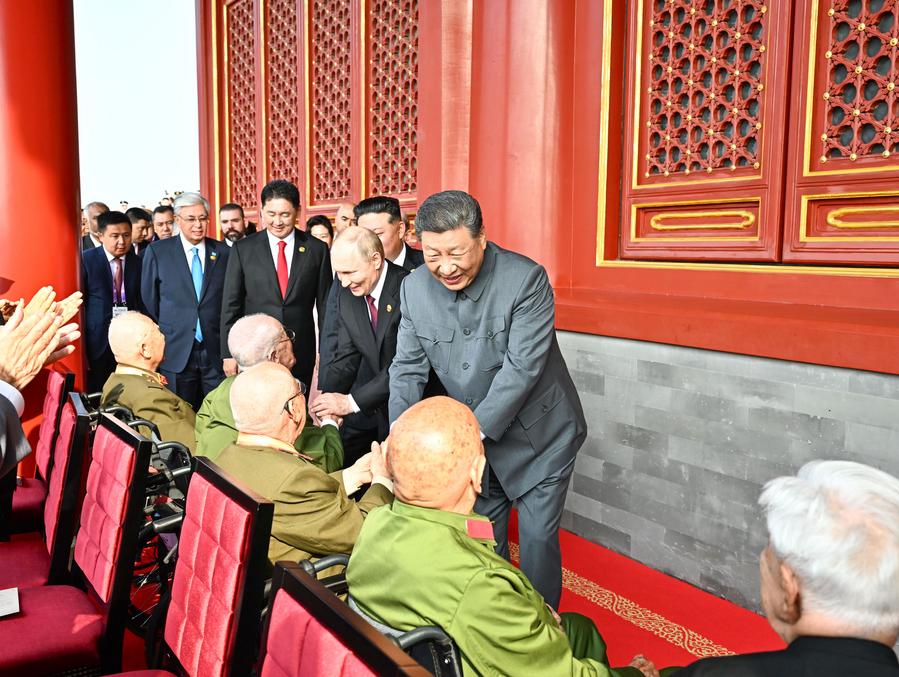
That same gaze was present in past May, when he watched PLA troops march across Moscow’s Red Square during commemorations of the 80th anniversary of the Soviet Union’s Great Patriotic War. Shortly after, Xi joined Russian President Vladimir Putin and other leaders to lay red flowers at the Tomb of the Unknown Soldier by the Kremlin Wall, pausing in silence for those who died in the fight against fascism.
Ahead of the trip, Xi published a signed article in the Russian Gazette newspaper — “Learning from History to Build Together a Brighter Future.” He wrote: “The world needs justice, not hegemonism.”
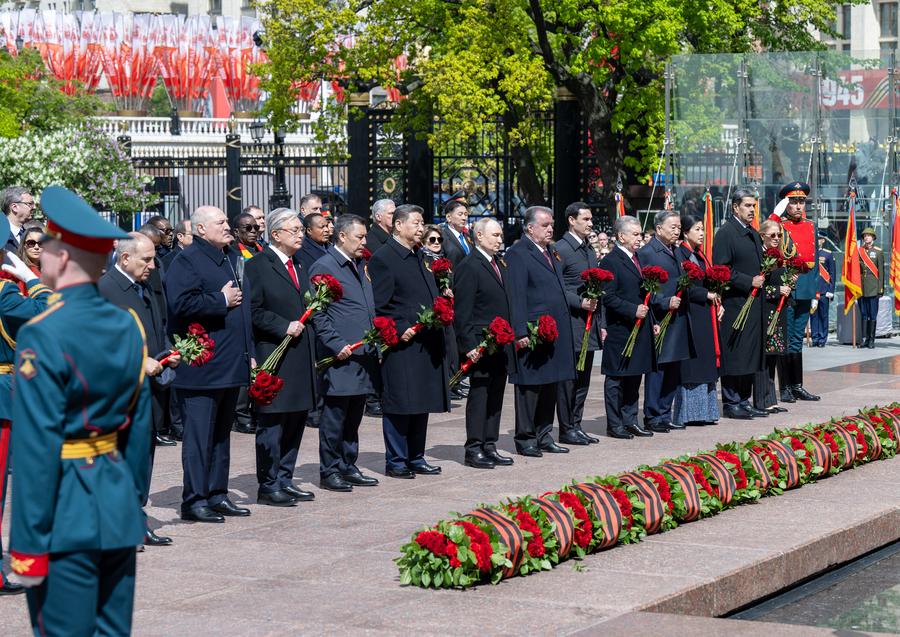
His appeal has roots in history. In 2017, during a visit to the Memorial of the First National Congress of the Communist Party of China in Shanghai, Xi lingered before three images capturing China’s suffering more than a century ago: a late-Qing-dynasty cartoon showing foreign powers carving up China, a chart of the crippling indemnities China was forced to pay, and Karl Marx’s sharp critique of then China’s isolationist complacency.
“How much humiliation. How much disgrace. China back then was a fat sheep awaiting slaughter,” Xi said.
The end of the World Anti-Fascist War, or WWII, set the stage for a rebirth of the international order. From the ruins emerged the United Nations in 1945, with its Charter enshrining sovereign equality, non-interference and the peaceful settlement of disputes — a landmark break from centuries of the law of the jungle where “might is right.”
As this year marks the 80th anniversary of the United Nations, Xi has urged revitalizing the world body under the new circumstances, enabling it to serve as the primary platform for countries to coordinate actions and jointly address challenges.
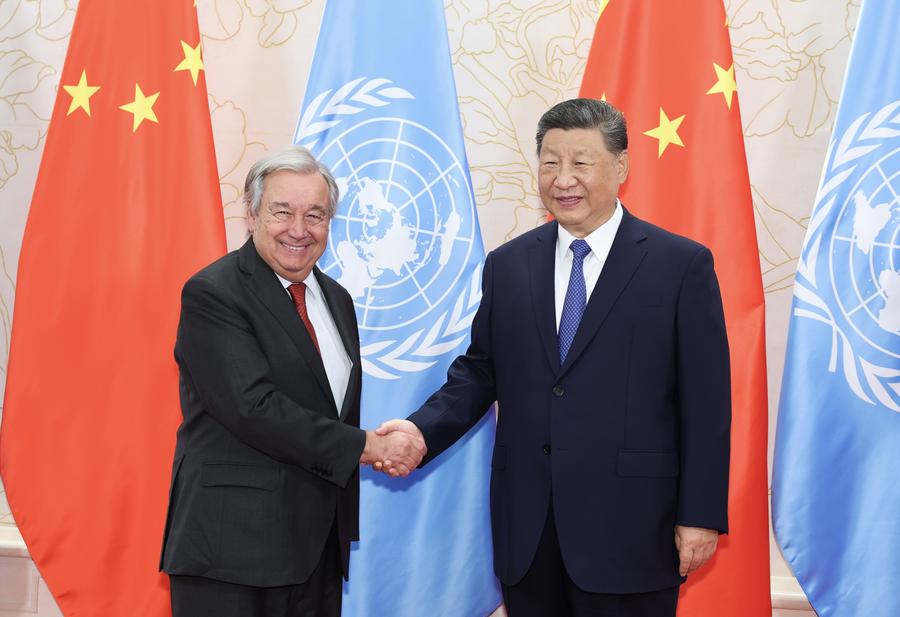
His message also reflects some acute present challenges facing the world order today. As Xi has observed, unilateralism, hegemonism, as well as bullying and coercive practices are severely undermining peace, justice and equality in the world.
Xi offered his explicit perspective. “The strong should not bully the weak,” he said. “Decisions should not be made by simply showing off strong muscles or waving a big fist. Selective multilateralism should not be our option.”
Under Xi’s leadership, China has stepped up global peace efforts by following true multilateralism — taking part in UN peacekeeping missions, advancing the Shanghai Cooperation Organization’s anti-extremism convention, mediating Saudi-Iran reconciliation, supporting the establishment of the “Friends for Peace” Group on the Ukraine Crisis, and co-founding the International Organization for Mediation in Hong Kong with 32 nations.
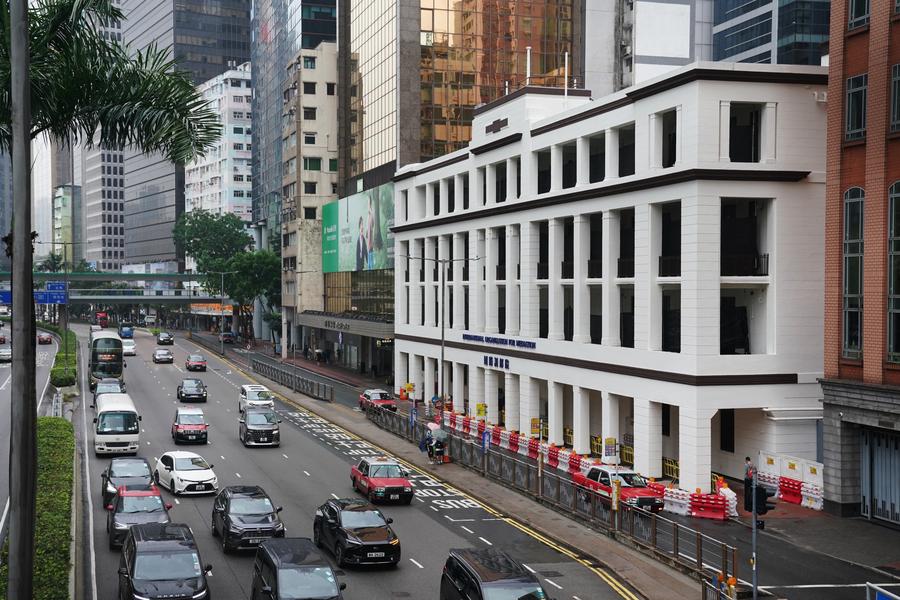
“China will never seek hegemony, nor does it believe in a zero-sum,” Xi has vowed. “Such notions have never been part of China’s cultural DNA, nor is there any such ambition.”
Brazilian President Luiz Inacio Lula da Silva once remarked on Xi’s strong sense of justice.
He told Xi: “you have been an inspiration for the profound changes humanity must pursue — to speak more of peace than of war, to cooperate more than compete, and to create more than destroy.”
NO ONE LEFT BEHIND
It is Xi’s conviction that “only when countries develop together can there be true development.”
Last year in Rio de Janeiro, Xi joined world leaders at the G20 summit, whose theme — “Building a Just World and a Sustainable Planet” — sought to confront the persistent inequalities in global development.
Back in 2016, Xi chaired the G20 summit in Hangzhou. The summit for the first time in history placed development at the center of the group’s macroeconomic policy coordination.
Sharing development experience, Xi told his colleagues in Rio that “China’s story is proof that developing countries can eliminate poverty.”
In 2020, Xi has led China, the world’s largest developing country, in eliminating absolute poverty, a full decade ahead of the UN 2030 Sustainable Development Agenda’s timeline.
“If China can make it, other developing countries can make it too,” Xi said.
Fighting poverty has always been a central focus of Xi’s work for more than 40 years, over the course of his career from county and city posts to provincial and national leadership. “I have devoted most of my energy to it,” he once said.
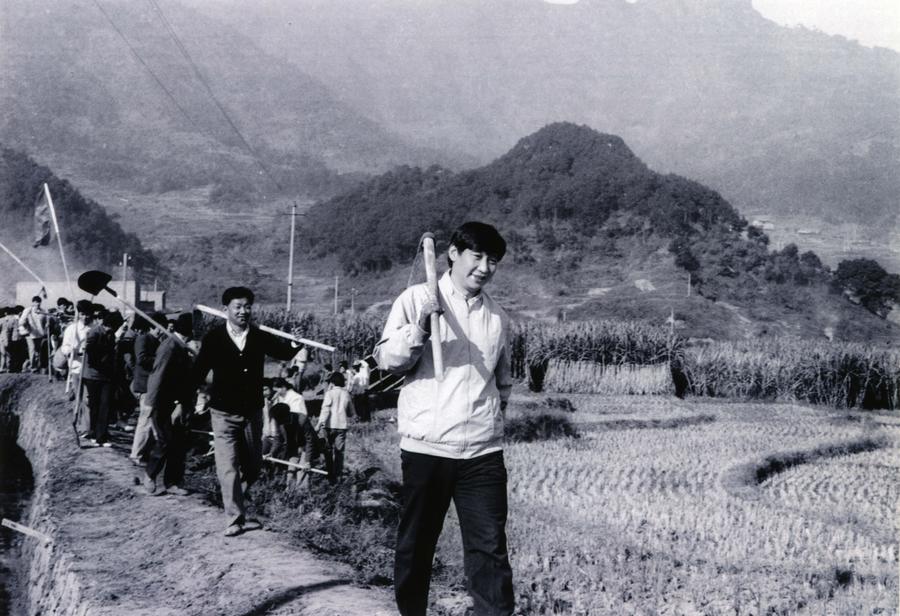
Xi championed several initiatives to end poverty, including Juncao technology — a grass used to cultivate edible mushrooms, feed livestock, and prevent soil erosion. Starting from the days Xi was a provincial official, he has begun to promote the technology to countries across the South Pacific, Africa and South America.
Part of this unprecedented journey is documented in “Up and Out of Poverty,” a collection of Xi’s speeches, articles and interviews from 1988 to 1990 during his tenure in Ningde city, China’s southeastern Fujian Province.
In 2023, the Uzbek-language edition of the book was published, with Uzbek President Shavkat Mirziyoyev writing a foreword entitled “A True Chinese Miracle.”
With a clear-eyed understanding of the world’s predicaments, Xi has traced the turbulence in economic globalization to a major source: the lack of inclusive growth. To characterize the contradictions of today’s world, he quoted Charles Dickens, “It was the best of times; it was the worst of times.”
In recent years, economic globalization has encountered setbacks, with the gap between the Global North and South and the technological divide becoming more pronounced. The gap between rich and poor is widening rather than receding, and 60 percent of people in the world have grown poorer, equating to almost 5 billion people, according to a research paper from Oxfam, the UK-based charity, released last year.
“Development,” Xi once said, “is an inalienable right of all countries, not a privilege reserved for a few.” This explains why Xi has pushed for universally beneficial and inclusive economic globalization.
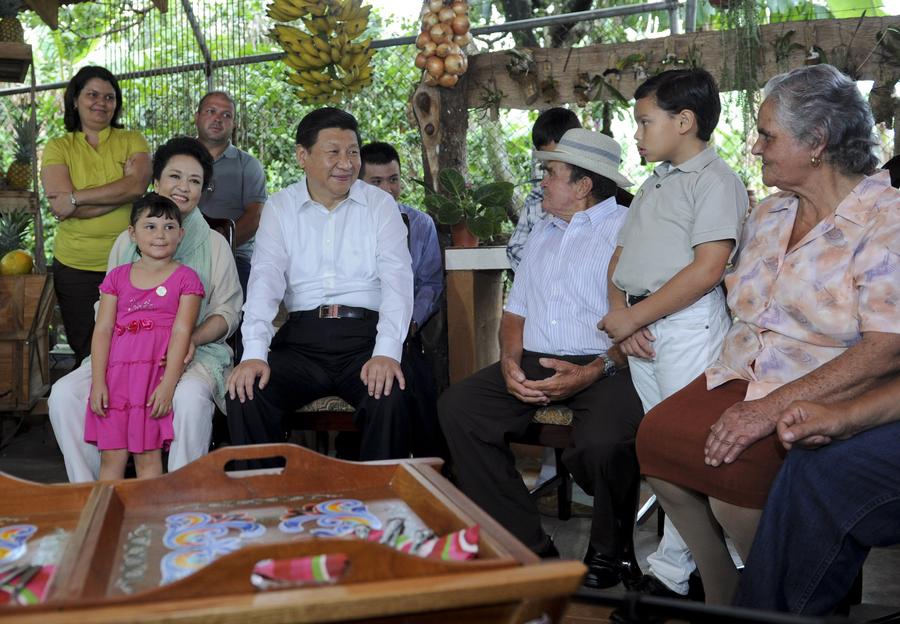
Months after taking over Chinese presidency in 2013, Xi travelled halfway across the world and paid a state visit to Costa Rica. During the trip, he chose a coffee farm as one of his stops. Sipping a freshly brewed cup, he said: “Seems to me, there’s room to export more coffee to China.”
The remark foreshadowed a broader pledge. China will keep its doors open and share the dividends of growth, Xi vowed. “Welcome aboard the fast train of China’s development,” he stated on several occasions.
Also in 2013, Xi unveiled his signature Belt and Road Initiative (BRI). More than a decade on, the results are tangible. Freight trains now thunder between Chinese cities and European capitals. Kenya’s modern railways and revitalized ports are remaking the East African landscape.
On top of deepening economic linkages, Xi promotes a governance model that breaks with what he views as an outdated relic of colonialism, the Wall Street Journal once commented.
Xi has consistently argued that development holds the master key to achieving that goal — a conviction shaped by his own life experiences. In the late 1960s, as one of China’s “educated youth” sent to the countryside, Xi lived among struggling villagers in northwestern Chinese Shaanxi province.
“One thing I wished most all the time,” he recalled decades later in a speech in the U.S. city of Seattle, “was to make it possible for the villagers to eat meat to their heart’s content.”
Today, Xi is leading China on the path towards modernization. As a leader with a global vision, he also hopes that China can walk the path of modernization with all countries.
“On the road to the wellbeing of all mankind, no country or nation should be left behind,” Xi said.
EQUITABLE ORDER
At the just concluded SCO summit in Tianjin, Xi put forward the Global Governance Initiative.
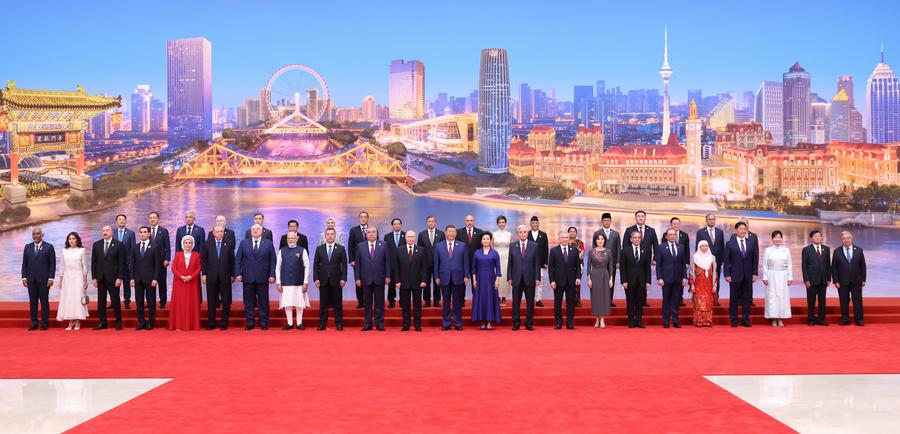
The aim of proposing the initiative is to “work together with all like-minded countries to resolutely safeguard the purposes and principles of the UN Charter, and build a more just and equitable global governance system,” he explained.
Xi’s proposing the initiative stands as a reflection of Xi’s sharp perception of the profound transformations that are reshaping the global landscape.
“The collective rise of the Global South,” Xi observed, “is a distinctive feature of the great transformation across the world.” He has pledged that China will always keep the Global South in its heart, and maintain its roots in the Global South.
In April 2015, the Indonesian city of Bandung — once called the “Paris of Java” — witnessed a moment where the past and present converged.
From the 19th-century Savoy Homann Hotel, leaders of nearly 100 nations set out toward the Independence Building, retracing the footsteps of a generation that had defied colonial domination six decades earlier.
At the head of the procession walked Xi and then Indonesian President Joko Widodo. It was a living echo of the 1955 Bandung Conference, the first meeting of Asian and African nations free of colonial powers, now hailed as a landmark event in the rise of the Global South.
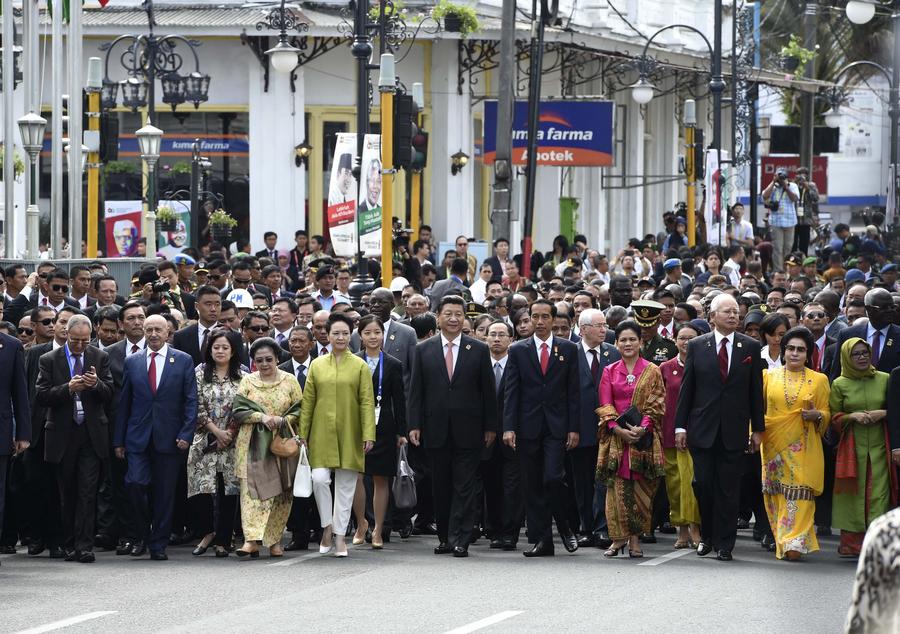
Through perseverance and huge sacrifice, emerging markets and developing countries have succeeded in gaining independence and shaking off the yoke of colonialism. These nations have been seeking development paths tailored to their own national circumstances rather than following models imposed by the outside. “Everything we do is to deliver better lives to our people,” Xi once said.
Driven by Xi’s global vision, the legacy born in Bandung is quickly becoming a reality, where developing nations speak not as isolated voices but as a united force.
The historic expansion of BRICS and the creation of forums linking China with Africa, Latin America, the Arab world and ASEAN all bear Xi’s imprint, offering the Global South channels to coordinate and amplify their say in global affairs.
In April 2025, during a visit to the BRICS New Development Bank in the China’s financial hub Shanghai — the first multilateral bank initiated and led by developing nations — Xi called it a pioneering effort for the Global South to join forces in improving global governance.
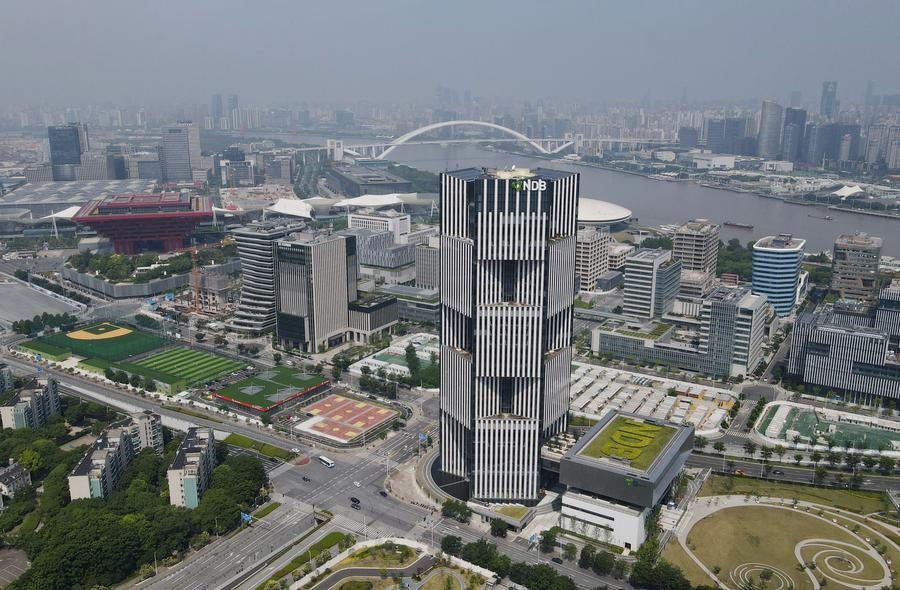
The origins of his vision can be traced back to Xi’s youth. He pored over The Communist Manifesto, Das Kapital and other Marxist classics, laying the intellectual foundation for what he later described as his abiding belief: “Marxism is broad and profound; ultimately, it is about seeking liberation for humanity.”
Decades on, as humanity is facing changes rarely seen in a century, Xi keeps pondering on the world: “What has happened to the world and how should we respond?”
Xi first proposed building a community with a shared future for humanity in Moscow during his inaugural overseas visit as Chinese president. Two years later, on the stage of the UN headquarters in New York, Xi elaborated his thoughts on building such a community that involves partnerships, security, development, civilization and ecological cooperation.
Xi’s vision of building a community with a shared future reminded Malaysian Prime Minister Anwar Ibrahim of an aphorism from the renowned ancient Chinese philosopher Confucius.
“Si Hai Zhi Nei Jie Xiong Di — within the four seas, all men are brothers,” Anwar uttered the maxim in Chinese during his reception held for Xi in Putrajaya this April.
“President Xi is known as a capable political leader, as an economist, but more so and prouder profoundly, a great human being with strong, clear vision and understanding civilizational of values,” he said.
Over the years 2021 to 2023, Xi launched the Global Development Initiative, the Global Security Initiative, and the Global Civilization Initiative. Along with the Global Governance Initiative, these proposals are designed to enhance and improve the present international system.
Tajik President Emomali Rahmon has said that Xi is a great leader with profound historical insight and a broad global vision. He said, “The many global initiatives he has proposed are conducive to advancing peace and progress for humanity.” Enditem
Source: Xinhua
Share Us
